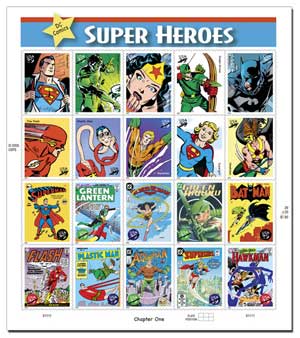In the latest issue of Reason (not online yet, unfortunately), Matt Welch has an article about his early, misplaced optimism of the role that blogs and amateur journalism would have. If anything, I was even more optimistic than Welch. Take a tool like Google where it is almost trivially easy to track down and fact check any bit of trivia along with blogs and open source CMS systems that reduced the cost of publishing to the entire world to next to nothing, and the result should have been a journalistic renaissance.
Apparently not. The reality is that if a given claim fits a person’s preconceived notion of the world, then most people will not factcheck it. So if you survey a random sample of blogs, I suspect you would find far more misinformation therein than in any comparable sample of traditional media (which is definitely not a compliment to traditional media).
A good example of this involves a series of inaccurates posts on the extremely popular techno-culture weblog Boing! Boing!. A contributor to news aggregation site Digg.Com submitted a link to a Boing! Boing! article about Marvel’s trademark of the word “super hero.”
Another contributor to the Digg site responded that a) Boing! Boing! looked like NASCAR (I counted no less than 20 ads on the front page) and b) that the information on Boing! Boing! was factually incorrect.
The response from other Digg.Com contributors was to mod such comments down with responses largely being variations of, “How could you mod down a Boing! Boing! article?”
But if you look at Boing! Boing!’s post on the trademark issue, it leaves out an important detail,
Marvel Comics: stealing our language
Marvel Comics is continuing in its bid to steal the word “super-hero” from the public domain and put it in a lock-box to which it will control the key. Marvel and DC comics jointly filed a trademark on the word “super-hero.” They use this mark to legally harass indie comic companies that make competing comic books.
First, the trademark at question is for “super hero” and “super heroes.” A number of sites have falsely concluded from Boing! Boing!’s ambiguous post that Marvel and DC have just recently applied for a third trademark for “super-hero” and “super-heroes.” The hyphenated version is so similar to the non-hyphenated mark, that it is almost certainly already covered by the claimed trademark (in the same way that Marvel doesn’t have to trademark “Spider-Mann” to prevent another comic book company from publishing that title about a web slinging wall crawler).
Second, Marvel and DC don’t just claim such a trademark. Trademarks for “super hero” and “super heroes” costumes and toys was granted 40 years ago, and DC and Marvel were jointly granted the trademark for “super hero” and “super heroes” for comic book publishing purposes in the early 1980s. Both trademarks and their history can be freely examined on the USPTO web site.
A little fact checking, please.
Now on the bigger issue, Boing! Boing! is absolutely correct — it is absurd that Marvel and DC were allowed to register such a common term as their trademark. They have used their trademark to enjoin a number of publications that wanted to use “Super Heroes” in the title of the publication, typically leading companies to come up with new titles. For example, if I wanted to create a parody book, “The Secret History of Super Heroes”, Marvel and DC could force me to change the title.
This is ripe for a legal challenge on the grounds that super hero was already sufficiently diluted as a generic term when Marvel and DC registered it and that they’ve done nothing to establish “super hero” as referring exclusively to Marvel or DC properties. Certainly they don’t incorporate it in their logos or any of their publications on a consistent basis.
